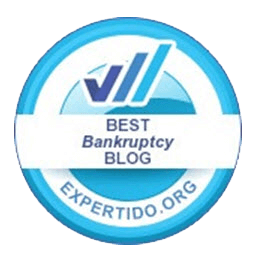South Carolina has exacting laws in place regarding the eviction process, and knowing your legal rights as a tenant is key to protecting them. If you have been threatened with eviction or fear that an eviction notice may be coming your way, seek the skilled legal guidance of an experienced South Carolina bankruptcy attorney today.
Your Landlord
In South Carolina, your landlord can evict you – but only if they follow the letter of the law in the process, which is set out in the Residential Landlord and Tenant Act. To begin, your landlord must have a valid reason for evicting you, which can fall into one of several categories.
Nonpayment of Rent
If you fail to pay your rent when it’s due, your landlord can end your rental agreement and begin the eviction process after affording you at least five days of written notice in which the rent remains unpaid. This written notice, however, is only required once during the lease term.
Breach of Terms
If you fail to live up to the terms of your rental agreement in some way other than paying your rent, it also supports the eviction process. To evict you, however, your landlord must first allow you 14 days of written notice. Only if you haven’t become satisfactorily compliant, haven’t otherwise remedied the problem, or haven’t made a good-faith effort to rectify the matter during those 14 days can eviction begin.
Additional reasons for eviction include:
- Failure to maintain the rental unit in a healthy and safe manner
- Abandonment of the rental unit
- Illegal activity on the premises of the rental unit
- End of the lease term
Bankruptcy Can Help
If you are concerned that your inability to keep up with the rent could lead to eviction, bankruptcy may help. Both Chapter 7 and Chapter 13 bankruptcies impose automatic stays that protect you from collection actions and can provide you with the breathing space you need to regain your financial footing and get back on track with your rent.
Chapter 7 bankruptcy is a liquidation process that can rid you of a considerable amount of unsecured debt, such as credit card and medical bills, which can afford you the financial wiggle room you need to cover your rent. Chapter 13 bankruptcy, on the other hand, is for higher earners, and it allows you to set up a three-to-five-year repayment schedule that can help you dig out from crushing debt while covering your rent. A savvy bankruptcy attorney can help you find the right path forward for you.
An Experienced South Carolina Bankruptcy Attorney Can Help
The compassionate South Carolina bankruptcy attorneys at Reed Law Firm appreciate how difficult the threat of eviction can be and will leave no stone unturned in their efforts to help you manage your debts and cover your rent more comfortably in the process. We are on your side and here to help, so please don’t delay contacting us online or calling 803-784-1517 in Columbia or 843-920-2094 in Florence today.


